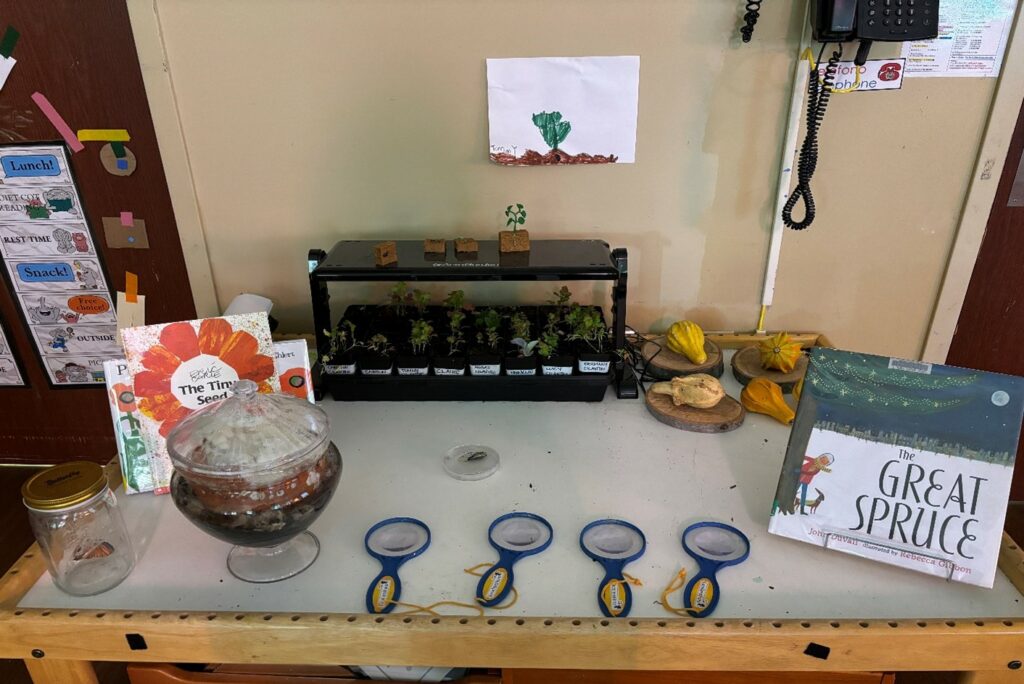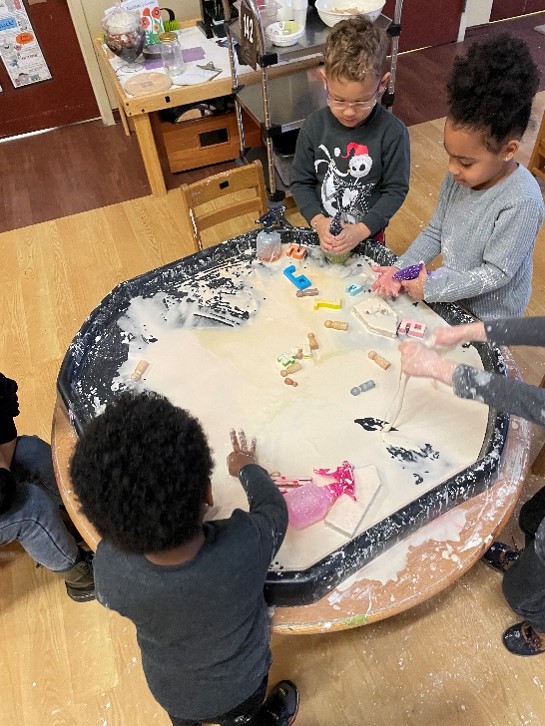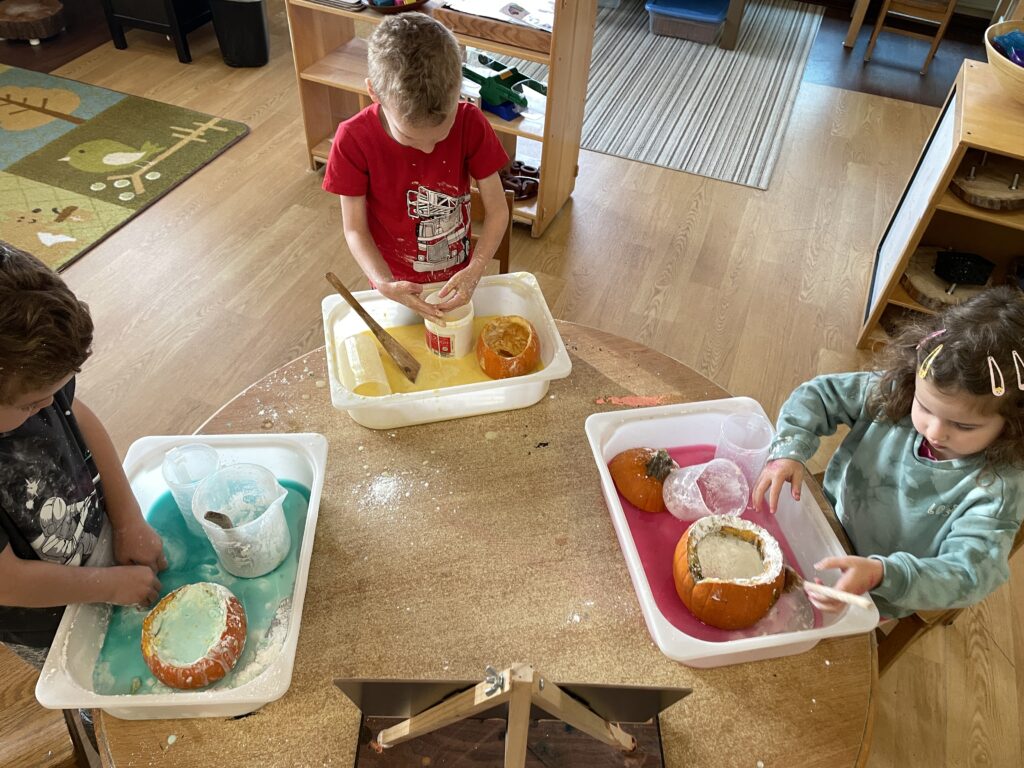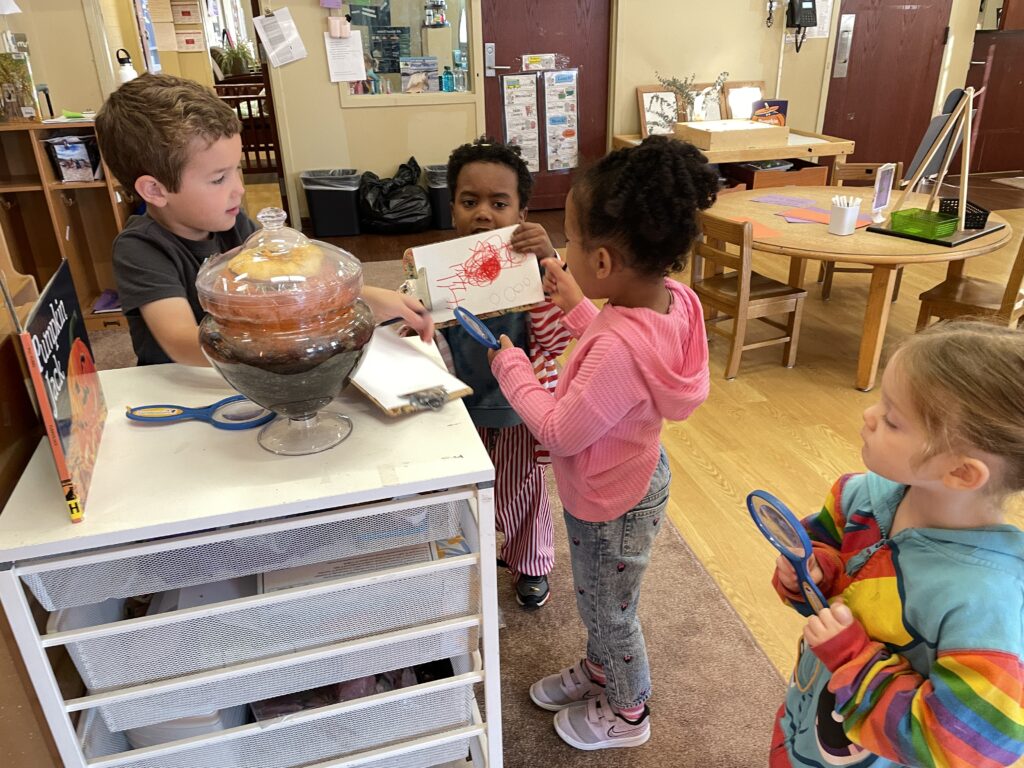
A simple science table set up for hands-on exploration can easily be changed according to the children’s interest, and it creates a daily gathering space for curiosity and learning.
Children are inherently curious about the world around them, and especially about nature, animals and the child’s physical surroundings. As children construct what the world looks like through observation, hands-on exploration and communication with one another, they are building a framework for later learning. And when teachers provide a setting that allows children the freedom to ask questions and the opportunity to examine scientific tools, an understanding and love of science begins to develop.
Through interaction with their peers and their teachers, children will make their own predictions and hypotheses about the outcome of science experiments. When children are shown how to observe closely and draw what they are seeing, their scientific knowledge is reinforced. A rich base of new vocabulary is established, along with a wide range of literature that is read to children and by children daily.
Children become excited by and invested in science-related projects, as they did when we used the book Pumpkin Jack by Will Hubbell to learn about the life cycles of plants — seed germination, growth, fruiting and decomposition. The classroom began the project with smelling, carving, tasting and separating out the parts of the pumpkin. Motor skills were developed through using tools to open and examine the pumpkin’s interior, and mathematical concepts were introduced by counting a pumpkin’s seeds.
The children then filled a sealed terrarium with soil and the remains of the pumpkin. And they watched. And they waited. And they inquired. And they hypothesized.
The project fostered in the students’ young minds the concept of cause and effect, and the children also understand better the importance of compost and recycling. The pumpkin science project taught them how they can turn something that appears to be ruined and without use, into a thriving plant to pick its fruits the next year.



FEATURED PROJECT: A simple science table set up for hands-on exploration, such as preparing seeds to sprout and grow from the interior of a decaying pumpkin, creates a daily gathering space for curiosity and learning.

